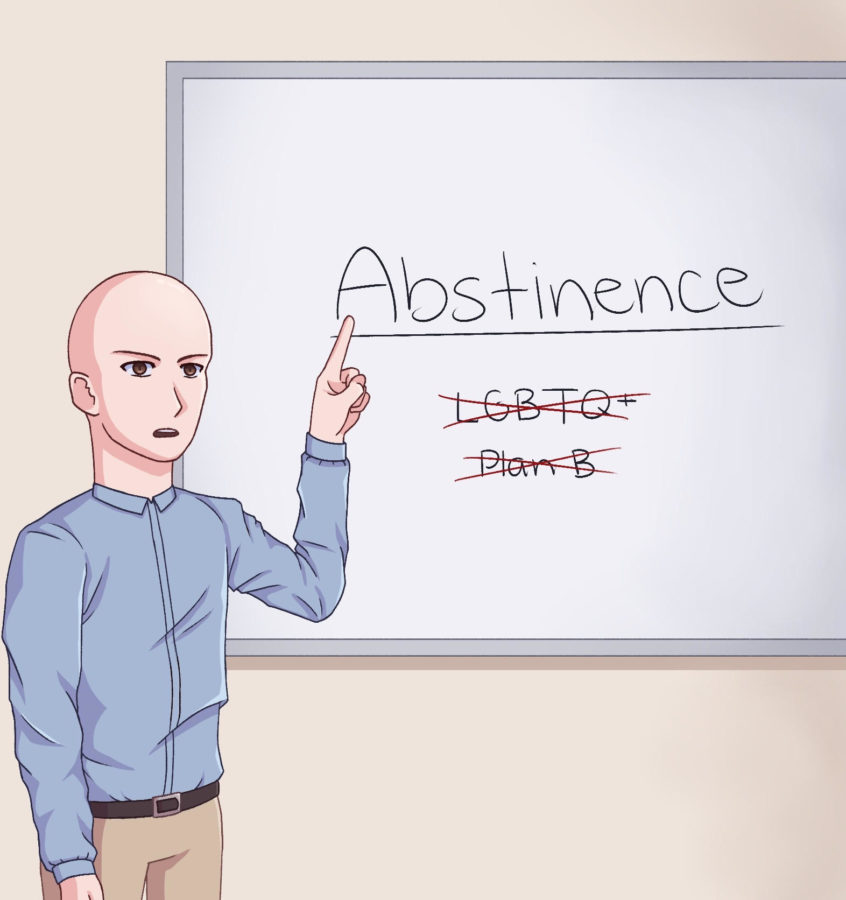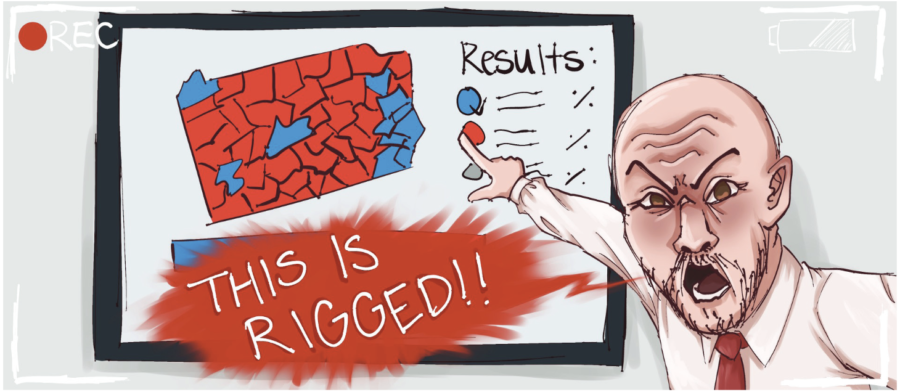The Spoke Editorial Board voted unanimously 15-0 in favor of this editorial with one person abstaining.
Like most high schools, Conestoga’s mission is to “inspire a passion for learning, personal integrity, the pursuit of excellence, and social responsibility in each student.” Students take years of math, science, English, art, music and more to ensure they are well-rounded, properly informed members of society by the time they leave the security of the classroom.
So why should sex education be any different?
Mentioned at the middle school level and never discussed in the mandatory Health and Fitness course for freshmen, the T/E School District severely lacks sex education. Family life units in middle school offer only a basic overview of the male and female reproductive systems, entirely leaving out conversations geared toward the LGBTQ+ community, and by extension, any student who is not cisgender — someone whose gender identity matches the sex they were assigned at birth — and in a heteronormative relationship.
Currently, Pennsylvania education standards do not require schools to have a sex education curriculum. What’s worse, if a school decides to teach their students about topics pertaining to sex, sexuality and development, there is no requirement for the information taught to be medically accurate. Yes, you read that correctly: it is legal for schools to teach incorrect information regarding sex.
Not teaching about sex does not result in some perfect utopia in which no teenagers have sex; the average person losing their virginity by 17 makes that blatantly clear. The effect of not having sex education is simple: kids will turn to other sources for information. Students that do not have access to medically accurate information from certified health educators will encounter misconceptions and rumors from the internet.
Additionally, Pennsylvania’s guidelines state that teachers are only able to answer questions with information directly taken from their school’s curriculum. Because Conestoga classes do not discuss LGBTQ+ topics, students’ questions about such issues are left unanswered, forcing young, impressionable minds to fill in the gaps with misconceptions. This leaves students who are not given the right information at the right time vulnerable to making catastrophic decisions that have the potential to negatively affect their and others’ physical, emotional and mental health.
One of these life-changing decisions relates to sexual pressure and consent. If students are not taught about the word “no” and its different forms from a young age, sexual assault will continue to be a significant problem. When kids are trained on how to act in various scenarios relating to consent, it makes for better reactions in real life situations. Just as taking the bullets out of a gun is more effective than wearing a bulletproof vest, education is better than protection. Schools should be teaching about sexual pressure rather than letting their students suffer the consequences of what they never learned.
In many high school classes, there are instances in which two methods of solving a problem are presented to students. Based on this information, students then choose what method best suits their needs. In the context of sex education, this concept is even more vital. In a setting where students will receive information that will inform extremely personal and important decisions, sex educators should be giving students all the facts in an unbiased, scientific fashion, allowing students to maintain autonomy in this aspect of their lives.
You always hear students complaining, “When am I going to actually use this information?” in math class, but at the high school level, sex education is a crucial topic to learn. When learning about aspects of identity, what contraceptive methods are available and how to have safe sex, the answer to the previous question is clear: you will use this information in your daily life.
Schools should prepare students to leave the classroom as adults who can make responsible decisions given the right information. While keeping information from teens might work for a time, eventually, most teens will begin having sex and should not be the ones to suffer on account of an education system that failed them.






















































































